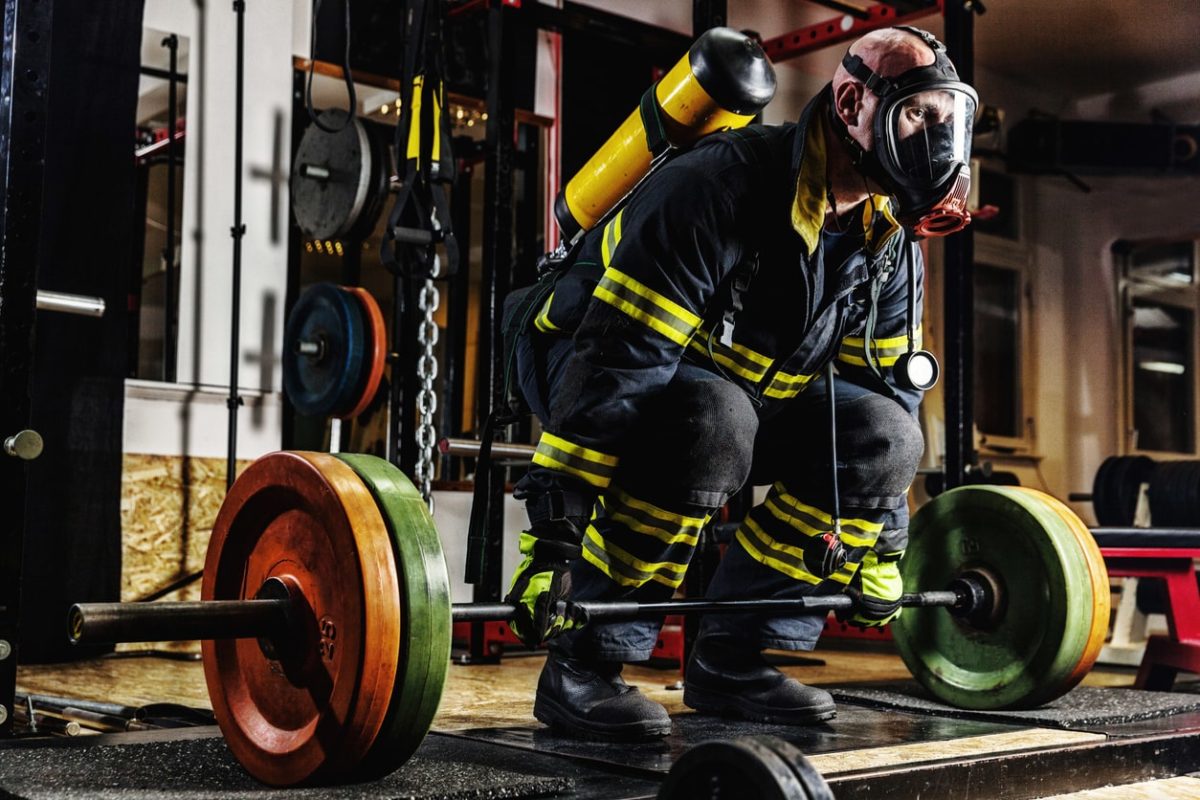
We all love indulging in junk food from time to time, but it will not help performance on the fire and rescue scene. Better performance and physique start in the kitchen. Eating healthy in the firehouse can be a very difficult task, but it is a very important one. If you and your team nourish yourselves when you’re off the clock, you will feel fitter and healthier when it comes time for duty. In addition to aiding in your performance, this can also reduce the risk of health issues (performance-induced or otherwise) down the line.
Firefighters work long, busy hours, and it can be difficult to find the time and motivation to put in the effort after a stressful day on the job. Here are simple nutrition tips that will help firefighters stay fit and keep their health under control.
1. Keep Sweets Out of Sight, Out of Mind
Most firehouse kitchens have baked goods and sweets out in the open and firemen commonly indulge even when they aren’t hungry. Put them in a cupboard or fridge. If it is out of sight, out of mind. You could even put some fresh vegetables or fruit on the table. You may get some backlash at first, but reducing the temptation is worth it.
2. Hydrate!
Water is the key component to numerous metabolic functions in the body, including digestion and elimination. Staying hydrated can help with performance, reduce chances of sudden cardiac arrest and strokes, and helps curb appetite. Drink a minimum of 64 oz. a day and more if exercising, working in a hot climate, or if you lost a lot of fluid on a fire call. Keep water on hand everywhere.
3. Prioritize Fruits & Vegetables
Fruits and veggies should be included in every meal and in as many snacks as possible. They provide the body with muscle and energy-promoting nutrients that a firefighter needs to get through the day. By loading your body with the maximum amount of nutrients for the least number of calories, they are a dietary bargain. Choose green, leafy, lower-starch veggies such as broccoli, kale, cauliflower, and spinach and cabbage.
4. Be Careful of the Sweet Tooth
Donuts, cookies and ice cream are common staples in the firehouse but just because it’s there doesn’t mean you should constantly indulge. Sugar has been linked to obesity, heart disease, liver disease, higher rates of cancer, tooth decay along with other problems. It also has an addictive quality that makes it a hard “habit” to break. Sugar is hidden in foods to replace fat, found in things like nut butters, breads, and salad dressings. Check nutrition labels to choose foods with less added sugar or go for the low-sugar version. Instead of sugary drinks, opt for water or unsweetened tea. If you add sugar to drinks or foods, gradually reduce the amount until you can cut it out.
5. Control Portions
Most firehouses serve an abundance of food on large plates. If you’re struggling to finish all of it or you feel a huge energy slump after meals, it’s probably a sign that you’re having more food than your body needs. A simple switch of dinnerware size can be very helpful for portion control. With large plates with empty space around the food, the brain unconsciously assumes the plate contains less food than a smaller-sized dish with no extra space. So serve firehouse meals on smaller plates.
Use bowls for salads and vegetables and smaller plates for the meat and carbohydrates. And don’t go back for seconds. It takes 20-30 minutes for our brains to signal that our stomach is full, so eating should be slowed down. Healthy nutrition takes some planning and commitment but the effort is worth it.
About Provident FirePlus
At Provident FirePlus, we offer custom-tailored packages to best protect firefighters and volunteer firefighters. We understand the risks that emergency response teams are subjected to on a daily basis, and have worked to serve these dedicated professionals for over 87 years. For more information about our products and policies, we invite you to contact our experts today at (855) 201-8880.

